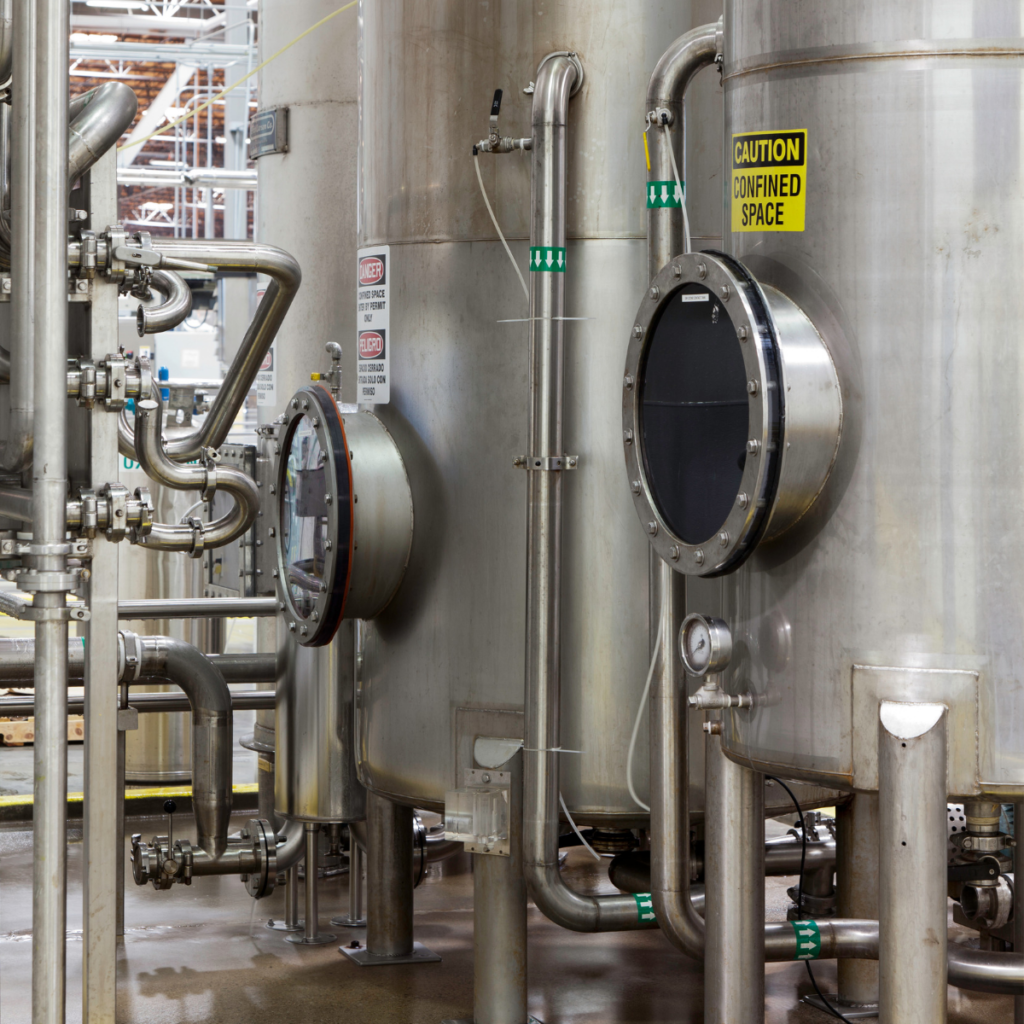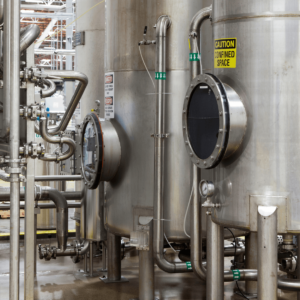Running a business can be challenging, especially when it comes to operating and maintaining your facility. Remembering to schedule regular maintenance checks and exercising proper care for your equipment is extremely important but it may often be the last thing on your mind. Industrial tanks serve many different purposes and can hold various liquids. However, they need to be cleaned regularly to prevent foreign bacteria and fungi growth as well as the accumulation of sludge and other inorganic materials. Hiring professionals to help you properly maintain your tanks is a good first step in industrial tank cleaning.
Scheduling regular maintenance for your industrial tank is an absolute necessity. No matter what your tank is used for, it needs to be cleaned regularly. The growth of bacteria and fungi can cause serious health issues and can contribute to the spread of disease. Often times sludge and other sedimentary materials will accumulate at the bottom of an industrial tank and these should be removed regularly with the use of a high-powered vacuum. Additionally, investing in frequent cleanings can help protect your assets by extending the life of your equipment.
How often should you perform industrial tank cleaning?
Implementing a regular industrial tank cleaning schedule is imperative to maintaining a functional industrial tank. Not only does having a recurring maintenance plan ensure that your equipment will receive the proper attention and care, but it helps to alleviate the stress of forgetting to perform the required upkeep. However, in order to create a maintenance schedule, you need to know how often your industrial tank cleaning is required. It is best to clean your tank before any kind of inspection, or internal maintenance. Also, if you switch out the contents for a different kind of liquid, you will want to do a thorough cleaning of your tank to ensure that there is no contamination from the previous substance. Industrial water tanks should be cleaned at least twice a year. Check the guidelines laid out by OSHA or any other agencies that specialize in your industry.
What types of industrial tank cleaning services are offered?
Merrick Group offers high-powered industrial tank cleaning services. The high-pressure cleaning technique utilizes varying degrees of pressure, ranging from 5,000 psi all the way to 40,000 psi. High-Pressure cleaning will remove any residue that can accumulate in an industrial tank. In order to be cleaned the tank will need to be completely drained first, and then the interior can be thoroughly cleansed. In addition to removing all manner of materials from your tank, Merrick Group can also help to maintain the life of your tank by repairing the interior walls. We offer protective coatings that will line your new or used tank and prolong the life of your equipment.
If you are considering industrial tank cleaning and maintenance services, follow these steps. Determine when your tank was last cleaned. Check for requirements that pertain to your tank. For example, an industrial water tank should be drained and thoroughly cleaned twice a year at minimum. Create a cleaning schedule so that you never miss an important cleaning date. Finally, contact Merrick Group and schedule a cleaning appointment. Our knowledgeable and experienced professionals will ensure that your equipment is properly cared for!




